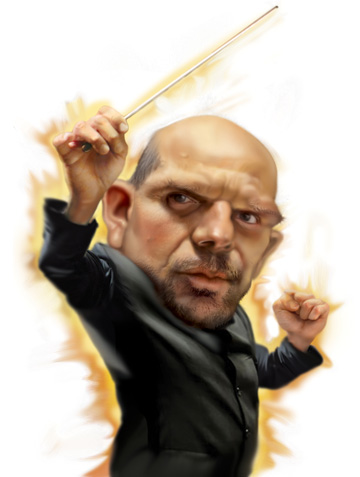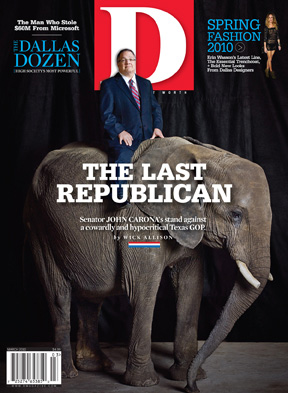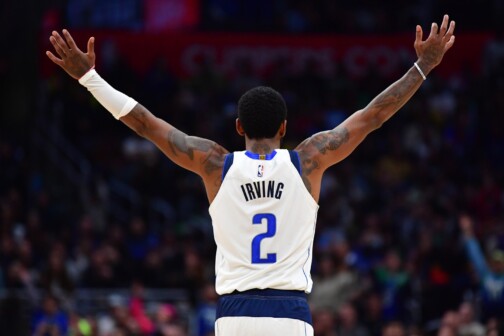A couple of months ago, I was visiting Los Angeles. On virtually every street corner there was a banner with a picture of Gustavo Dudamel, the dynamic, young Venezuelan conductor who has taken over the baton from Esa-Pekka Salonen at the L.A. Philharmonic. Dudamania is rampant in Tinseltown. And then I realized: we have a hot maestro of our own right here. So, with his recent contract extension as an excuse to chat, I sat down to lunch the other day with Jaap van Zweden to see what he’s all about.
In a word: energy. He still has the body language and the determination of the fierce soccer player he was at school, combined with the delicacy of the musician who gave up his position as concertmaster at the Concertgebouw in Amsterdam to take up conducting as his primary métier.
In another word: thoughtfulness. And modesty combined with self-confidence. I ask about his most satisfying performances, his great moments. He pauses. “The Beethoven Ninth was not bad,” he says, about the roof-raising free performance he led during the opening week of activities at the AT&T Performing Arts Center. “Not bad” is an understatement. It was thrilling. He also cites a recent concert version of Wagner’s Die Meistersinger in Amsterdam last summer. When the concert seems to go by in a minute, “you know you are not there anymore.
It’s just music. You lose yourself. There’s no conductor, no players, no soloists. You are lost and absorbed in the moment.” You study, you rehearse. Then you go out there and just do it. You have forgotten everything you have known. “On the day of the concert,” he says, “you can be free. The road to heaven is heaven.”
He has already energized the orchestra and the DSO audiences. Sometimes upwards of 150 people will line up at his green room after concerts to meet the maestro. Best of all, many of them are young. “My door is always open,” he says. He has started a youth organization in hopes that eventually the kids will take their parents to the concerts, instead of the other way around.
Like Olivier Meslay, the new chief curator at the DMA, about whom I wrote in the January issue, van Zweden has found a “warm and energetic” welcome in Dallas. “Because the orchestra is the city in microcosm,” he says, “after my first rehearsal I loved the city.” And the honeymoon here is still on. Whether it will be a long marriage remains to be seen. “Everyone wants you,” I tell him. He was on his way to do a series in Philadelphia, where the orchestra has been desperately looking for a permanent conductor for years. Van Zweden gives a diplomatic response: his contract with the DSO allows him the freedom to be a principal guest conductor elsewhere.
The current classical scene is nothing like it was when I was a child. Philadelphia had Eugene Ormandy, forever; Cleveland had George Szell; Chicago, Fritz Reiner; Boston, Serge Koussevitzky and then Charles Munch. And of course New York had Bernstein. And then Lennie became both the most recognizable star in the firmament—the Dudamel of his day—and also the very model of a jet-setting maestro. Each orchestra had its distinctive sound, the product of years of practice with one man at the helm. Those days are gone, in the age of globe-trotting.
But van Zweden at least pays lip service to a modern version of monogamy: “If you put seed in the ground, it is dangerous to pull out the flowers. You need time.” (He also says he’d like to move from his apartment at the Ritz-Carlton to a house with a small garden.)
But he also says, “I have my own sound, which I always take with me.” He wants both to respect the soul of any ensemble and to put his own stamp on it. Can he, and we, have it both ways? Van Zweden calls himself “a happy detective,” seeking the soul of the orchestra, trying to achieve “freedom onstage, through discipline.” Last fall, he proved how he could take two different orchestras and impose his own interpretations upon them, with comparable responses from the critics. His Philadelphia program included Anton Bruckner’s monumental Ninth Symphony. Writing for the Philadelphia Inquirer, Peter Dobrin had lots of good things to say, calling the conductor “assured,” “vigorous and energetic,” but he also thought some of van Zweden’s tempos brisk to the point of glibness. The ensemble went “like clockwork” but at the price of some deeper human emotion. Scott Cantrell here has said similar things. Although deeply respectful of the maestro, Cantrell has found a lot of impulsive rushing.
Can there be such a thing as too much energy, too much muscle? Sure, and van Zweden may be too pugnacious, too feisty. We can say two things about this. First, at least he has a style, a point of view. Some conductors leave you wondering whether they have any ideas at all. Second, what style could better suit this town than one full of vigor, strength, and—most of all—speed? There’s new energy in downtown Dallas, and Jaap van Zweden is at the heart of it.
At the end of our lunch outdoors at Dali, in One Arts Plaza, a strong wind came through and blew over two umbrellas covering our tables. One knocked over the glasses of wine from the table beside us. Van Zweden jumped up and recovered the umbrella, all the while continuing the conversation. Without missing a beat.
Write to [email protected] .






